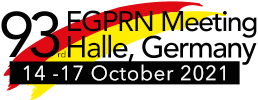Lessons learned from the implementation of the IMOCAFV multicenter study on Family Violence
Lodewijk Pas, Raquel Gomez Bravo, Roiyah Saltus, Snezana Knezevic, Alice Brunnet, Tjasa Pugelj, Rosemarie Schwenker, Zaida Azeredo, Katerina Bubnic Sotosek, Joyce Kenkre, Maria Papadakaki, Sajaratulnisah Othman, Carmen Fernandez Alonso
Keywords: Family Violence, Scoping review, Inquiry, Consensus development methodology
Background:
Due to its various presentations and patients’ multisectoral support needs family violence is difficult to investigate. It is highly frequent, but generally neglected relation to core principles for family medicine, Guidelines indicate what should be done, but international consensus on how and effective implementation strategies are lacking.
Research questions:
What methodological lessons can be learned from a multicentre study during the global health crisis?
Method:
Key-persons inquiries, country scoping reviews and nominal groups were conducted. Intimate partner violence, child abuse, elder abuse, and Female Genital Mutilation were included. A consensus procedure modified Delphi study follows.
Results:
Lessons learned include strategies to manage different countries and levels of competence, the area of cultural differences, voluntary involvement with central support, translation and back-translation, operating online exchange tools, and dealing with participants’ workload, not only for the project but also for the meeting.
Online training increased research competence reorienting quantitative researchers to qualitative analysis; adaptation to local experience increased the needed number of meetings.
A flexible research process resulted in some centers starting independently. Piloting key-person questionnaires among National Coordinators encouraged involvement. The first data collection wave stimulated others' participation.
The complexity of the project methodologies and local Ethical Committees requests increased workload. Only some partners obtained local support. Finally, a proposal was submitted to the EU by those eligible. Key-person questionnaire data, scoping reviews, and preliminary nominal group works will illustrate possibilities and limitations of the research framework.
Conclusions:
Agility during a global process is axiomatic and lessons learnt can be used to transform how multi-site studies are undertaken. A large number of voluntarily involved people resulted in a common research framework rather than a single project. Regular online sessions were essential during the pandemic. A comprehensive multi-center project should build in flexibility, stepwise planning, piloting, training, and methodological support.
Points for discussion:
1. How to perform well an international multi-country study with large differences in facilities between participating countries?
2. How can qualitative content analysis of findings collected in local research be integrated internationally?
3. How can we take best advantage to improve research coordination and support using online facilities and based on lessons from the pandemic?

